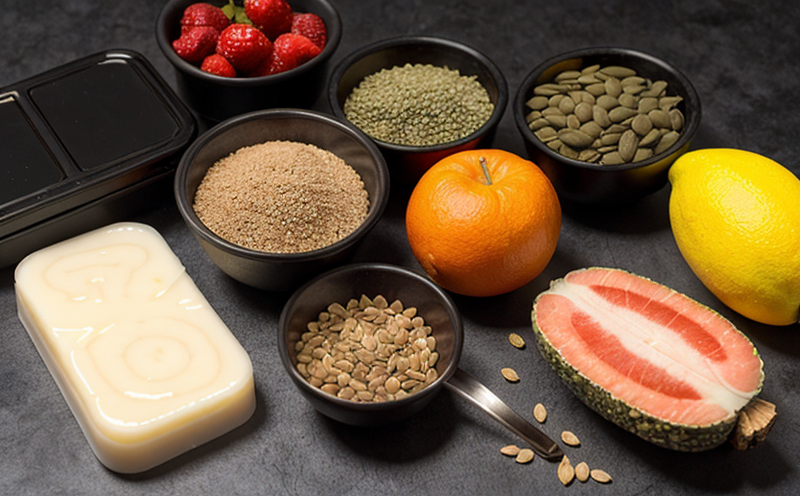EN 18274 Determination of Crude Ash in Animal-Derived Meals
The determination of crude ash content is a critical quality control parameter for animal-derived meals. This test, as per EN 18274, ensures that the products meet regulatory and nutritional requirements. Crude ash refers to the total mineral component remaining after organic matter has been burned away at high temperatures.
This process involves heating the sample in a muffle furnace under controlled conditions until all volatile materials are removed. The resulting residue is primarily composed of minerals, which provide essential nutrients for animal health but also contribute to potential dietary risks if present in excess. Compliance with this standard is essential for manufacturers looking to ensure product quality and safety.
The test procedure outlined in EN 18274 specifies detailed steps including sample preparation, heating conditions, cooling procedures, and the precise weighing of the final residue. This ensures consistent results across different laboratories, making it a reliable method for quality assurance.
Understanding the significance of this parameter is crucial because it helps identify whether there are any excessive mineral components that could negatively impact animal health or performance. By adhering to this standard, manufacturers can maintain high standards in their production processes and deliver products that meet both regulatory requirements and consumer expectations.
The importance of accurate measurement cannot be overstated. Variations in ash content can indicate issues such as contamination from non-food materials or poor quality raw ingredients. Such inconsistencies might affect the overall nutritional value and safety profile of the final product. Therefore, implementing rigorous testing procedures like those specified by EN 18274 is vital for maintaining consistent quality.
In practice, this involves meticulous sample handling to ensure accurate representation of the entire batch being tested. Properly prepared samples are then subjected to controlled heating conditions in a muffle furnace until all organic matter has burned away. Once cooled appropriately, the remaining residue is weighed carefully and compared against established standards.
This test not only supports compliance with EU regulations but also contributes significantly towards enhancing product quality by providing clear insights into potential areas of improvement or deviation from expected norms. With increasing emphasis on sustainability and responsible sourcing practices within the food industry, ensuring proper adherence to such standards becomes increasingly important for maintaining trust among consumers.
- Ensures compliance with EU regulations regarding nutritional composition in animal-derived meals.
- Provides valuable data that supports quality assurance programs aimed at improving product consistency and safety.
- Aids in identifying potential issues related to contamination or poor-quality raw materials, thus enhancing overall product integrity.
Eurolab Advantages
At Eurolab, our commitment to precision and accuracy sets us apart in providing EN 18274 tests for crude ash content. Our state-of-the-art facilities equipped with advanced analytical instruments ensure that every test meets the highest quality standards.
We employ highly trained professionals who are certified in performing these types of analyses, guaranteeing consistent results every time. With years of experience and a strong reputation for reliability, Eurolab is your partner in ensuring product excellence.
Our services go beyond just the test itself; we offer comprehensive support throughout the entire process, from sample collection to final analysis and reporting. Whether you need assistance with regulatory compliance or simply want to enhance your product quality, our team is here to help.
Quality and Reliability Assurance
At Eurolab, ensuring the highest level of quality and reliability is a cornerstone of our operations. For EN 18274 testing, we adhere strictly to international standards such as ISO/IEC 17025:2017, which governs the competence of testing laboratories.
This ensures that all tests conducted are accurate, repeatable, and traceable to internationally recognized benchmarks. Our rigorous quality management systems include regular internal audits and external accreditation reviews to maintain these standards continuously.
In addition to meeting regulatory requirements, we also prioritize customer satisfaction by providing detailed reports that offer actionable insights into any areas of concern identified during the testing process. This proactive approach helps clients make informed decisions about their product development and quality assurance strategies.
Competitive Advantage and Market Impact
- Accurate, consistent results that meet strict regulatory requirements.
- Expertise in handling complex samples with precision and reliability.
- Detailed reports offering actionable insights for continuous improvement.
- Comprehensive support throughout the testing process, enhancing overall efficiency.





